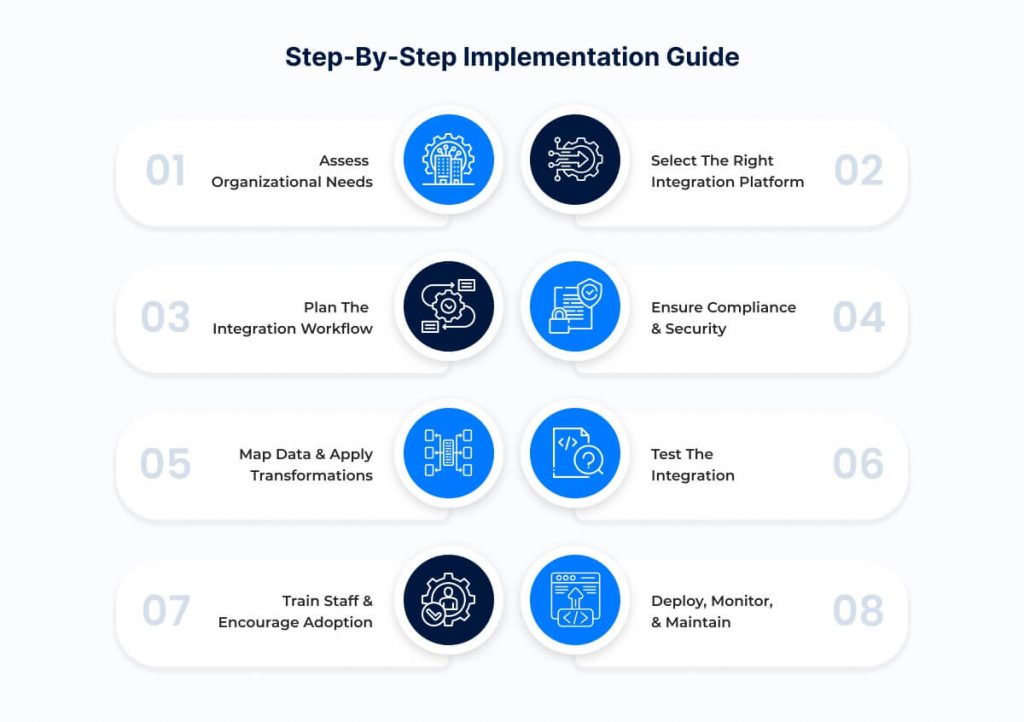In the changing field of healthcare, the use of Artificial Intelligence (AI) at the front desk is changing how medical practices function. Medical practice managers, owners, and IT staff in the United States are seeing a change, where AI is streamlining operations, improving patient experiences, and enhancing care. This article looks at the latest trends in AI for medical front-desk automation, focusing on practical applications and real-world effects on healthcare delivery.
AI-Powered Call Automation
One key feature of AI in medical front-office settings is its ability to automate call handling. Platforms like Voiceoc show how AI can manage patient calls around the clock for appointments, medication refills, and questions, reducing the workload for healthcare staff. This automation means patients do not face waiting times or voicemails, which is important in a field where time matters. With AI taking care of standard calls, medical staff can focus more on patient care and handle more complex tasks that need human input.
A study highlighted by healthcare experts shows that AI can significantly reduce appointment no-shows. AI chatbots are particularly effective in this area, sending targeted reminders and follow-up messages to patients. Reports suggest that practices using AI technologies have seen decreases in appointment no-shows by up to 30%, which helps improve overall efficiency.
Enhancements in Patient Experience
AI not only improves operations but also enhances the patient experience. Medical facilities are increasingly using AI-driven virtual assistants to respond to patient questions about medication, scheduling, and general service information. For example, IBM’s Watsonx Assistant uses natural language processing to provide quick answers, reducing wait times and improving service delivery. This quick access to information increases patient satisfaction and loyalty.
Assistant uses natural language processing to provide quick answers, reducing wait times and improving service delivery. This quick access to information increases patient satisfaction and loyalty.
Additionally, AI systems help improve treatment adherence among patients. Data from healthcare technology experts indicates that nearly 70% of patients do not follow their treatment plans, particularly for critical medications like insulin. AI technologies offer reminders and manage patient medications, which can improve adherence and safety.
Data Management and Patient Privacy
The use of AI also brings important issues regarding data management and privacy. With the growing amount of data handled daily, following regulations like HIPAA (Health Insurance Portability and Accountability Act) is essential. Medical practices must ensure that AI solutions include strong data security measures to protect sensitive patient information while remaining compliant. Maintaining privacy is important for building trust with patients, which influences their engagement levels.
Organizations such as TigerConnect are improving communication within healthcare teams through enhanced clinical workflows that include patient context messaging and secure links with Electronic Health Records (EHR). This reduces the cognitive load on medical professionals while ensuring accurate data access, leading to a smoother administrative process.
Integrating AI with Electronic Health Records
The combination of AI with existing EHR systems offers significant advantages. Automating tasks like data entry and documentation reduces administrative burdens that can detract from patient interaction. Advanced AI systems can analyze unstructured data from clinical notes and discharge summaries to ensure continuity of care, saving healthcare professionals valuable time and improving patient interactions.
Incorporating AI into EHR can also help in quickly summarizing patient data, allowing healthcare providers to focus on complex cases. These technological improvements contribute to a more effective healthcare system, enabling practices to allocate their resources toward better patient care.
Workflow Automation in Medical Practices
Streamlining Administrative Tasks
AI’s ability for workflow automation goes beyond simple call handling. Robotics Process Automation (RPA) and Natural Language Processing (NLP) technologies help in streamlining various administrative tasks. This includes automating routine claims management, coding, and billing processes, leading to better operational performance.
For instance, Auburn Community Hospital noted a 50% reduction in discharged-not-final-billed cases by using generative AI technology in their revenue cycle management (RCM) practices. Similarly, organizations like Banner Health have integrated AI into insurance coverage discovery processes, automating requests for information and improving operational efficiency without needing more staff.
Reducing Claim Denials
A significant issue faced by medical practices is the high rate of claim denials. Generative AI applications have shown effectiveness in addressing this by creating appeal letters, managing prior authorizations, and improving communication in the revenue cycle. By using predictive analytics, practices can identify which claims are likely to be denied based on past data, allowing them to respond proactively.
Organizations have reported a 22% reduction in prior authorization denials for community health networks that have used AI tools in their claims processes. This integration improves staff efficiency and billing accuracy, reducing administrative burdens and enhancing revenue capture.
Enhancing Clinical Workflows
The adoption of AI in clinical settings is increasing, leading to better communication and workflow efficiencies. For instance, platforms like TigerConnect offer features that facilitate advanced scheduling, reducing the workload for staff while enhancing communication between patients and providers. The focus on AI-driven context messaging helps healthcare teams keep better track of patient needs, allowing for more personalized care.
AI and Fraud Prevention
The application of AI extends to fraud prevention in healthcare. The industry loses a significant amount of money due to fraudulent activities, estimated at around $380 billion each year. Machine learning algorithms can recognize unusual billing patterns, enabling AI solutions to detect potential fraud and notify practices before serious losses happen.
This capability is critical for practices aiming to protect their financial health while building trust with patients. Future improvements in AI are expected to refine these abilities further, strengthening the healthcare system overall.
Patient Engagement Through Chatbots
AI-powered chatbots serve as important tools for improving patient engagement. These virtual assistants can respond to common inquiries, manage appointment scheduling, and send medication reminders, all outside standard business hours. Data indicates that facilities using chatbots report better patient satisfaction and efficiency, allowing staff to concentrate on direct patient care.
With AI chatbots in use, practices can create a more engaging patient experience. It has been noted that about 64% of patients are comfortable using AI tools for immediate answers to their questions. This reflects a growing trend toward integrating technology into healthcare interactions, aligning with patient-centered care models.
The Importance of Human Oversight
Despite the positive results from AI technologies, human oversight is still vital in healthcare delivery. Experts suggest that while AI should support hospital operations, it should not replace the important human aspect of care. A human-in-the-loop approach guarantees that AI-generated outputs, especially in clinical decision-making, are carefully examined to reduce risks associated with errors or biases from AI processes.
Healthcare organizations are encouraged to form cross-functional teams to oversee the evaluation and application of AI technologies, ensuring a focus on both innovation and the quality of care.
Final Review
AI is changing front-desk operations in medical practices throughout the United States, contributing to better efficiencies, stronger patient engagement, and improved financial results. With practical applications in call automation, claims management, patient satisfaction, and fraud detection, AI is helping healthcare organizations enhance their operations significantly.
As the sector embraces artificial intelligence, medical practice managers and IT professionals need to recognize these developments. This will help their facilities stay competitive and provide high-quality care in a demanding environment. As AI technologies keep evolving, the future of healthcare practices seems set to be more efficient, patient-friendly, and sustainable.
Understanding how AI transforms healthcare operations is crucial for adapting to new trends and thriving in an increasingly connected digital world.
The post The Latest Trends in AI for Medical Front-Desk Automation first appeared on Simbo AI – Blogs.






